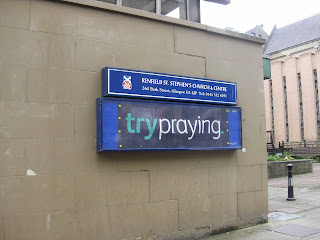I went to Glasgow for three days last week to undertake my research process.
I had planned to met with Celina Jeffery, Manager and editor of Drain magazine, and attend a workshop and talk, but unfortunately these were cancelled last minute. I had set up some other meeting as well with participants in the Clipperton Project expedition to Clipperton Island:
Sculptor Charles Engebretsen and Marine Biologist Kathy Dunlop, as well as an opportunity to see the Clipperton Project Exhibition at the new home of Glasgow Sculpture Studios.
I had also organised to meet Clementine Sandison, an artist and cultural worker at The Hidden Garden project, about the Glasgow Harvest projects and Culture Kitchen which she is very much leading on.
I now need to have time to transcribe my interviews and write up what I feel happened.
But for now here are the questions which I asked, after looking at Johnny's questions:
1. Can you tell me a bit about yourself and your practice?
2. Can you describe the project for me?
3. How did you get involved?
4. What did you hope to achieve?
5. Have you been able to do that?
6. What did you do?
7. What connections did you make?
8. What helped you/impeded you?
9. Were you able to shape the direction of the project? In what way?
10. What were the results/manifestation? How did you help decide them?
11. How were the results and the project recorded? Did this seem appropriate?
12. Have the relationships continued?
13. What happens next? Where does it go?
14. Is what happened useful? Who for?
15. Has involvement impacted on you - in your life or the way that you work?

Anna, Emily, Johnny & Susan, Wakefield, 13 June 2012
Monday, 15 October 2012
Sunday, 14 October 2012
discussion themes
I'm starting to focus my research and will post more as ideas develop and as I identify artists for discusisons. At this stage this is what I'm thinking about.
Questions:
- In what ways do the arts promote change?
- What are the ethical implications of this? – whose change? what change?
- How can processes of change be documented, recorded and presented? - consider that changes may be; intended or unintended, within a project, as a result of it or beyond the immediate activity.
- In what ways can project documentation support participation and change?
Approach:
Draw comparisons between theories of education and socially
engaged practise to understand these processes and in order to recognise and
begin to take full advantage of my own skills.
Test developing understandings through discussions with
artists about their practise.
Reflect on my own approach to project design and development,
work with artists and sharing of project stories.
Working Ideas:
Artists lead through practise by enabling us to see the
world differently.
Artists lead without knowing the answers, valuing risk and uncertainty
"Creating without preconceptions means fostering conditions
rather than producing the object or situation"
Its not necessarily about promoting an agenda of change but rather acknowledging
“the ability of every individual touched by the work to
think in new ways.”
Subscribe to:
Comments (Atom)



